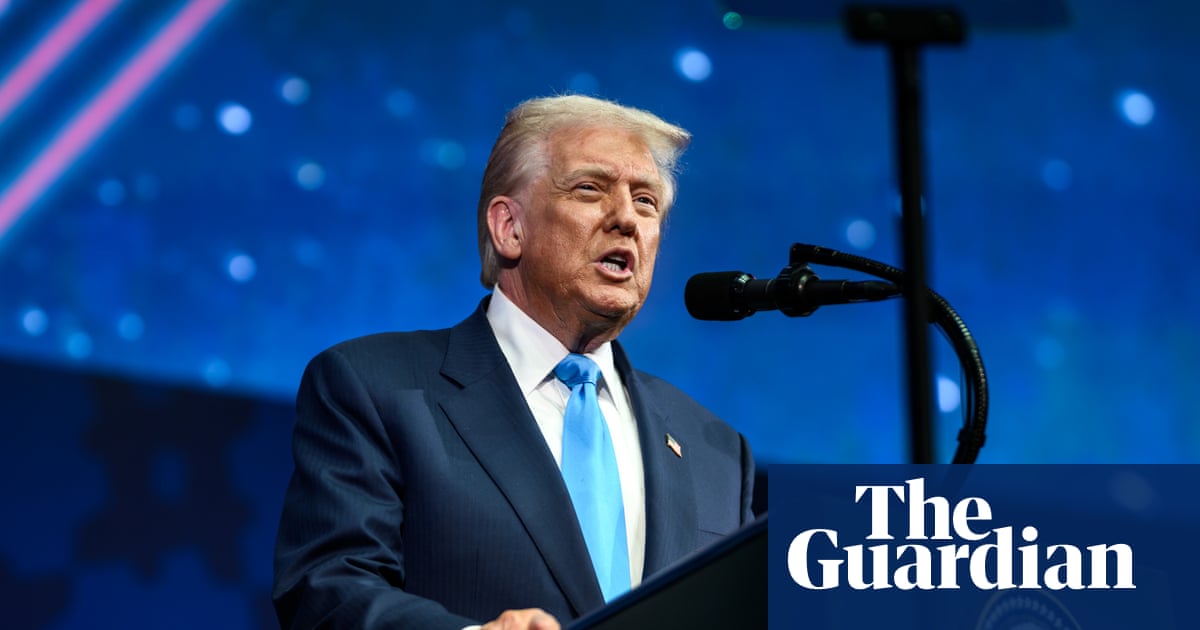On Friday, the 2025 Nobel Peace Prize will be awarded — and President Trump has made no secret of his desire to win it, saying he just wants “to be treated fairly” for "stopp[ing] seven wars.”
Or “eight,” if you include the newly announced (but still tentative) agreement between Israel and Hamas, which the president added to his list on Thursday.
“I don’t think anybody in history has settled that many,” Trump told reporters. “But perhaps they’ll find a reason not to give it to me.”
As the world awaits this year’s big peace prize announcement, the Nobel Committee has been busy announcing one other award per day: literature, chemistry, physics and physiology or medicine. (The winner in economic sciences will be announced on Monday, Oct. 13).
Here’s a complete list of the 2025 laureates so far:
Winner of the Nobel Prize for Literature: László Krasznahorkai of Hungary
“For his compelling and visionary oeuvre that, in the midst of apocalyptic terror, reaffirms the power of art.”
The Nobel Committee describes Krasznahorkai — pronounced CRAS-now-hoar-kay — as “a great epic writer in the Central European tradition that extends through Kafka to Thomas Bernhard.” With his wry, dystopian themes and long, labyrinthine sentences, he is known as a writer’s writer — and a perennial favorite for the Nobel Prize.
In 1985, Krasznahorkai published his first novel, the subversive Santantango, which challenged Hungary’s communist regime by depicting life on a failed collectivist farm. His latest novel to appear in English, Herscht 07769, features only one period across its 400 pages. Hungarian director Béla Tarr has adapted several of Krasznahorkai’s novels for the screen; the two have also collaborated on screenplays.
Hailed as a “master of the apocalypse” by Susan Sontag, Krasznahorkai once told the New York Times that he aspired to develop an “absolutely original” style, adding, “I wanted to be free to stray far from my literary ancestors.” According to the Times, Krasznahorkai’s work also “contains critiques of authoritarianism and the rise of right-wing ideology”— and he has spoken out against Hungary’s authoritarian leader Viktor Orbán.
Winners of the Nobel Prize for Chemistry: Susumu Kitagawa of Japan, Richard Robson of England and Australia and Omar M. Yaghi of Jordan and the U.S.
“For the development of metal-organic frameworks.”
Kitagawa, Robson and Yaghi developed a new kind of molecular structure — part metal, part organic. The metals act as nodes; the organic molecules (which contain carbon) link the nodes together. The key feature of these new molecular building blocks is that they’re spacious enough for gases and other chemicals to flow right through.
These inner cavities are “almost like rooms in a hotel, so that guest molecules can enter and also exit again from the same material,” Heiner Linke, chair of the Nobel Committee for Chemistry, said during the announcement of the award.
Why does this matter? Because it paves the way for advanced, environmentally friendly materials that can harvest water from desert air, capture carbon dioxide and store toxic gases.
Winners of the Nobel Prize for Physics: John Clarke of England, Michel Devoret of France and John Martinis of the U.S.
“For the discovery of macroscopic quantum mechanical tunnelling and energy quantisation in an electric circuit.”
In the mid-1980s, Clarke, Devoret and Martinis made a discovery that ultimately led to cellphones and fiber optic cables, among other technologies: they showed that “two properties of quantum mechanics, the physical laws that rule the subatomic realm, could be observed in a system large enough to see with the naked eye,” according to the New York Times.
“There is no advanced technology today that does not rely on quantum mechanics,” Olle Eriksson, chairman of the Nobel Committee for Physics, said when the award was announced.
The scientists’ breakthrough has also helped lay the groundwork for the decades-long race to build a quantum computer, a “strange and powerful” device that could do in five minutes what it would take a traditional supercomputer 10 septillion years to accomplish. In recent years, Devoret and Martinis have both worked on quantum computing projects at Google.
Winners of the Nobel Prize for Physiology or Medicine: Mary E. Brunkow of the U.S., Fred Ramsdell of the U.S. and Shimon Sakaguchi of Japan
“For their discoveries concerning peripheral immune tolerance.”
Brunkow, Ramsdell and Sakaguchi have contributed to advances in cancer and autoimmune treatments by discovering how the human immune system prevents rogue cells from attacking tissues and organs.
Essentially, they found a population of T cells that had been missed — regulatory T cells — along with the genes that control them. T cells are white blood cells that fight infection; regulatory T cells keep the immune system in balance.
The Nobel committee called their work “fundamental” and “groundbreaking.”

 German (DE)
German (DE)  English (US)
English (US)  Spanish (ES)
Spanish (ES)  French (FR)
French (FR)  Hindi (IN)
Hindi (IN)  Italian (IT)
Italian (IT)  Russian (RU)
Russian (RU)  2 weeks ago
2 weeks ago























Comments